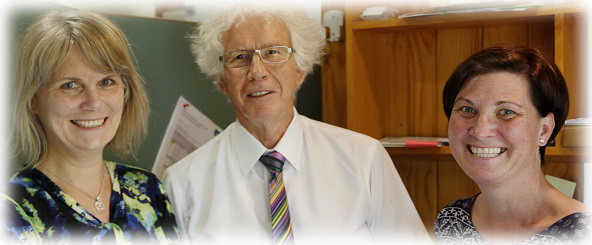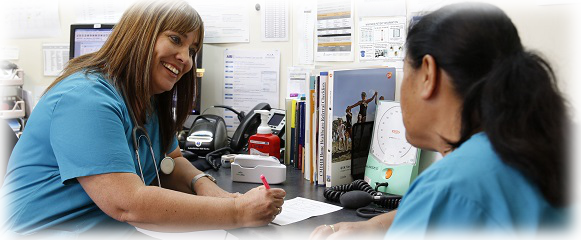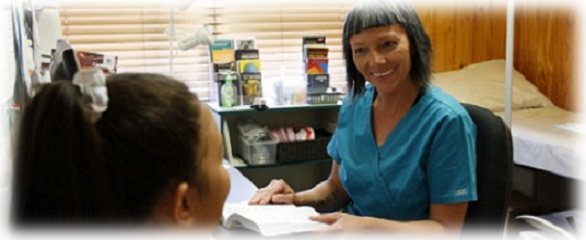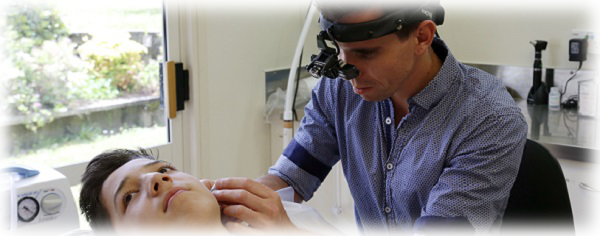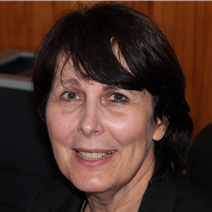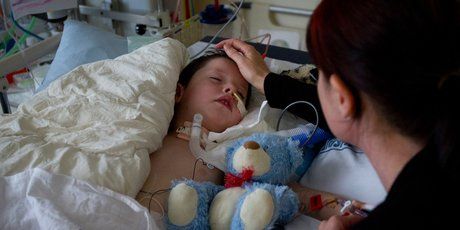February Newsletter
2013
Hi again to everyone in the Millhouse Community
Welcome to the new 2013 year.
A great loss
I had nearly finished this newsletter when Dr Else informed me she was leaving because of health issues.
Doctor Else's decision to resign came as a shock as I'm sure it will be for the patients for whom she has cared over the last thirteen years. Else has struggled with cancer and with the continuing adverse effects of therapy, she has decided to retire from medical practice.
We wish Dr Else every happiness and improving health as she takes time to renew her body and spirit. Thank you Else for the dedication, compassion and love you have shown to the patients of the Millhouse Community.
If you would like to say thank to Dr Else you may leave a message on the Millhouse Integrative Medical Centre Facebook page.
Millhouse Medical Team
I want to assure Dr Else's patients that Millhouse will continue to serve you through its medical team. Doctors Aileen and Stephanie have considerable skills in family and women's health. Dr Scott at 130 has already seen a number of Dr Else's patients and is willing to consult with you. Our practice nurses, Maree , Kate, Vilya and Beverley are also available for cervical smears and well-woman's visits.
Beverley Godfrey is our new but experienced practice nurse who has joined the team.
>>>Learn more about this
Summer Sun
I hope you're taking a few minutes each day to soak up ultraviolet B sun rays that stimulate and replenish vitamin D stores. Within minutes of exposure to summer sun, the oils in-and-on your skin are changed into thousands of units of the precursor vitamin D hormone. When converted by your body to its active form this chemical influences more than five percent of your genes, communicating health-sustaining messages to your body.
After 15-20 min of sun exposure, apply sunscreen to avoid being burnt. Avoid showering for a few hours after being in the sun; this will allow greater vitamin D absorption.
Later this year I will review the latest information on the immune-protecting and life-enhancing properties of this amazing vitamin.
>>>Learn more about this
Summer can also be a time of sadness
The joys of Christmas and the New Year can be short lived with conflict and turmoil also materialising. Chronic Care Management (CCM) Depression is a highly-recommended funded programme that enables those with significant depression and anxiety to receive up to 10 free consultation sessions with their doctor. Where appropriate, and within funding parameters, specific cognitive behavioural therapy (CBT) with a qualified clinical psychologist may be arranged. CBT helps patients to improve patterns of thinking and acting in day-to-day living.
Please contact one of the medical team if you are struggling with life's issues and wish to enrol in CCM depression; entry conditions do apply.
>>>Learn more about this
Smoking Cessation
Flyers were sent in January about a Smoking Cessation course to be run by East Health PHO. Congratulations to a number who replied indicating they had already stopped. That's great news, because giving up smoking is one of the most important lifestyle interventions you can make to improve health as well as making huge financial savings. (e.g. 10 cigarettes smoked each day, costing $1.50 per cigarette, equals $3197.50 savings per year.)
Remember that nicotine patches and gum as well as Champix tablets are free on prescription, although a consultation fee applies when seeing the doctor for a prescription. If you can't stop smoking, consider taking 1-2 grams of Vitamin C each day which will assist in neutralising the destructive cellular processes initiated by smoke chemicals.
Contact our practice nurses or Noreen at reception for details on the East Health smoking cessation course.
>>>Learn more about this
Dr Scott's Vasectomy Service
If you have completed your family and are considering permanent contraception, one solution (for males) is to see Dr Scott McLaren for a vasectomy sterilisation operation. Dr Scott will discussion the procedure at an initial consultation, then arrange a convenient time for the vasectomy to be performed. You can book directly at Reception to see him.
E-Appointments
A flyer will be sent out shortly indicating when we are up and running. To make an E-appointment with your doctor you will need to access the Millhouse webpage and click the appointment icon (bottom of page). This action will connect with ConnectMed and the Millhouse Integrative Medical Centre appointment templates. You will need to register and choose a unique password which will enable access to your doctor's appointment schedule so you can choose your preferred day and consultation time. Consultations can be booked and cancelled at any time.
Newsletters
All past newsletters are available on line and the website can be searched for specific information.
>>>Learn more about this...
Dr Ric writes: This year I want to continue providing information on complementary treatments, including anti-aging lifestyle choices, and the importance of gut flora (bowel bugs) in immunity, Alzheimer's disease and integrative cancer therapies. Don't be surprised if I repeat the importance of exercise, nutrition, and living a fulfilling and de-stressed life. I will also comment on current medical issues that surface in the media.
The Risk of Tetanus
On December 22 last year the NZ Herald carried the headline ''It was hideous' - family's tetanus agony' which included the photo opposite. The article told the story of how a seven-year-old Alijah Williams contracted tetanus. His mother, a healthcare worker married to a food technologist, said "It was hideous. He was spasming every three minutes. He was biting his tongue and bleeding. His arms were spasming and he was arching his back and his whole face and jaw was completely locked". Alijah was admitted to Starship Hospital where an astute doctor saw this presentation, and noticing the cut on his foot and that he had not been immunised, diagnosed tetanus. Tetanus is caused by a toxin from the bacteria Clostridia tetani that lives in the soil and is found in the gut of animals in spore form. This toxin causes paralysis of nerves and muscles. Tetanus is an incredibly painful and debilitating condition which can take months for recovery and which is fatal in ten percent of sufferers, particularly the new-born and the elderly.
Dr Mike Shepherd, the clinical director of the Emergency Department, mentioned there had been at least five cases of tetanus in unimmunised children at the hospital in the past 10 years. The Ministry of Health reports 34 persons with tetanus from 2000 to 2009, and another seven cases in 2010.
Mrs Williams said they made what they thought was "an informed decision not to vaccinate any of their children because of concerns over adverse reactions", but had since changed their minds. This incident has again raised debate and antagonism between the pro and anti-vaccination groups on whether or not to immunise children, but the story is a reminder that there are risks in choosing not to administer tetanus immunisation.
History shows that when people come into contact with a new (novel) infection for the first time, particularly when they have weakened immune systems, they may succumb to the illness. This was particularly evident in New Zealand in the 18th and 19th century, when measles, influenza, typhoid and tuberculosis infections, brought by European immigrants, wrought havoc among the indigenous Maori population and took the lives of nearly a third.
Risk
Over the years I've spoken to many enquiring parents, seeking help with the decision whether or not to immunise their children. This story highlights the most important question for parents and caregivers: what would my response be if my unimmunised child became infected with tetanus, diphtheria, polio, whooping cough, measles or other immunised illness? Over the years vaccination has become safer. The manufacturing process is more tightly controlled. Doctors are now advised not to give immunisation to unwell children, to keep accurate clinical records and to notify CARM (Centre for Drug Reactions Monitoring in Dunedin) of any vaccination reaction. The more dangerous live-attenuated vaccines have been replaced with acellular vaccines, and the mercury preservative (thimerosal) has been removed from all infant vaccines except influenza. I encourage parents to research the risks and benefits of vaccination and extend an open invitation to discussion of this complex issue with them.
Vaccination is not the only Factor in Immune Response.
In 1982 the Science Journal reported that when a zinc-deficient diet was given to mother mice, her offspring showed immune depression for six months. The researchers also noted that even though the mice were returned to a normal diet, the second and third generation also showed immune incompetence, although not as severe as the first generation.
Iron also has a profound effect on the body's immune response.
I have spoken previously (March 2011 newsletter) about vitamin D, the sun factor, which has a profound effect on immunity and I recommend all pregnant and lactating woman check their blood level and consider supplementation for themselves and their children (drops are available at Millhouse). Remember to consume an enriched high-quality diet (December 2012 newsletter) that will build an active immune system.
Good Bacteria
Late in pregnancy, the vaginal secretions become enriched with glycogen that feeds specific lactic-acid producing bacteria (bifidobacteria) that impede pathogens (bad bacteria) that can ascend the birth canal. The "good" bacteria" from the vagina coat the baby in a microbial soup as it is born. Colonies of bifidobacteria, which are thought to come from the bowel, also develop deep in the expectant mother's breast, ready to inoculate the infant gut. Breast milk cultivates these distinct bacteria by producing hundreds of special sugars called oligosaccharides, that cannot be digested by the baby but feed the beneficial bacteria. The DNA of these good bacteria has even been found in the placenta, which was previously thought to be sterile.
This means that if a baby is born by Caesarean section, circumventing the bacterial washing, it has a greater chance of developing allergy and asthma, and appears to have a higher risk of developing type 1 diabetes. Studies on Finnish children who had C-section showed that at one month of age, they still hadn't acquired the bacteria that a vaginally-delivered child had at age two days. At six months, the C section subjects had half the amount of B.fragilis (a Gram-negative different bacteria) of the comparison group. Another study suggests that C-section children may have abnormal bowel flora until 7 years of age. I strongly recommend probiotic supplements for Caesar-born babies, to help normalise these good bacteria; ask your chemist for a quality brand. I believe all pregnant and lactating women and infants, especially any who are taking antibiotics, should use a probiotic.
Other questions come to mind when considering infant bowel flora (microbiota): Can the baby's microbiota be adversely affected by being born in a high-tech hospital which harbours unusual bugs? What do antibiotics do to the infant bowel flora? I will discuss these questions at a later date.
I highly recommend 'An Epidemic of Absence' by Moises Velasquez-Manoff, for further information on the importance of bugs and immunity.
Yours in good health
Dr Richard J Coleman
www.millhousemedical.co.nz



